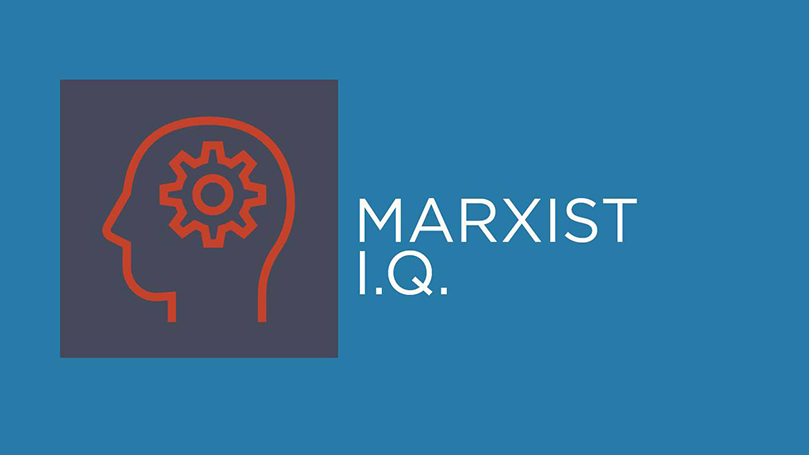
The danger presented by COVID-19 prompted the Republican Party to hold their convention online, the first and last example of Republican resistance to Donald Trump. The irony of the need to hold the convention virtually because the president and Republicans in power have refused to initiate a national coordinated response to the pandemic should be lost on no one. This IQ is cheekily dedicated to the “grand” old party of Trump, McConnell, and other far-right luminaries.
1. People throughout the world have seen the Trump administration as “neo fascist.” In what sense does the classic definition of fascism developed by the Communist International (Comintern) in the 1930s fit the Trump administration?
a. A movement of the most reactionary sectors of the capitalist class in the service of finance (monopoly) capital
b. The incitement of violence against political opponents, targeted minorities, and foreigners in the name of restoring a glorious past
c. A leader cult in which all statements and demands of the leader were to be believed and obeyed
d. All of the above
2. Karl Marx in the name of the International Workingman’s Association (First International) wrote a letter of congratulations to Abraham Lincoln on his re-election in 1864. If Lincoln could return and see this Republican convention, he would think that
a. the Republicans had succeeded in advancing greater equality through building an industrial infrastructure.
b. the Republicans were still the party of free soil and free labor.
c. the Confederates had somehow revived after his death and taken over the Republican Party.
d. the Republicans were still the party associated with “free schools” and “land grant colleges” (public education).
3. While Donald Trump has used tabloid journalism and entertainment media for 40 years to sell himself, Marxists see “his success” in gaining the presidency as the result of
a. the lack of any difference between the Republicans and the Democrats.
b. the ignorance and prejudice of the majority of voters.
c. the deeply undemocratic nature of the U.S. political system, from the uncontrolled use of money in elections to voter suppression to the electoral college.
d. his modesty, humility, and sense of humor.
4. The global pandemic highlights the Trump administration’s policies in that it
a. exposes the ignorance and incompetence of the entire administration in responding to a real crisis.
b. exposes the administration’s association with lunatic fringe ideas and groups in supporting “miracle” cures and drugs and disparaging the use of masks, social distancing, and other normal health-care practices.
c. shows the administration’s using the crisis to attack both China and Democratic governors, the former for creating the crisis and the latter for harming the economy.
d. All of the above
5. Marxists and Communists see the possibility of decisively defeating both Trump and the GOP and bringing about systemic reforms to eliminate the conditions that made the Trump presidency possible in
a. sitting out the election and preparing to build a third party for socialism and labor.
b. forming small self-sufficient collectives that would function outside the existing economic and political system as it collapsed.
c. joining in the present upsurge led by the Black Lives Matter movement to build a broad and militant united front to defeat the GOP in the elections with a program that governments at all levels will have to address.
d. supporting Trump’s reelection on the principle that it will lead to a revolution against capitalism.
6. When the Republican Party was first formed in the 1850s, it fought against both the pro-slavery Democrats and this party, which resembles strongly what it is today:
a. The abolitionist “Liberty Party” calling for the immediate abolition of slavery
b. The Peoples or Populist Party calling for anti-monopoly policies
c. The American Party or No-Nothings calling for severe immigration restrictions and inciting violence against recent immigrants and foreigners
d. The Greenback Party calling for currency reform
7. The Republican response to Donald Trump is reminiscent of
a. the pro-fascist appeasement America First movement’s response to Charles Lindbergh before World War II.
b. the right-wing Republican response to Joe McCarthy in the early 1950s.
c. the response of French peasants in the 1850s (the second French Empire of Napoleon III, whom Marx called “the little Napoleon”) who paid to see a performer fart out musical scores and cheered him on.
d. All of the above
Answers here.


 Join Now
Join Now